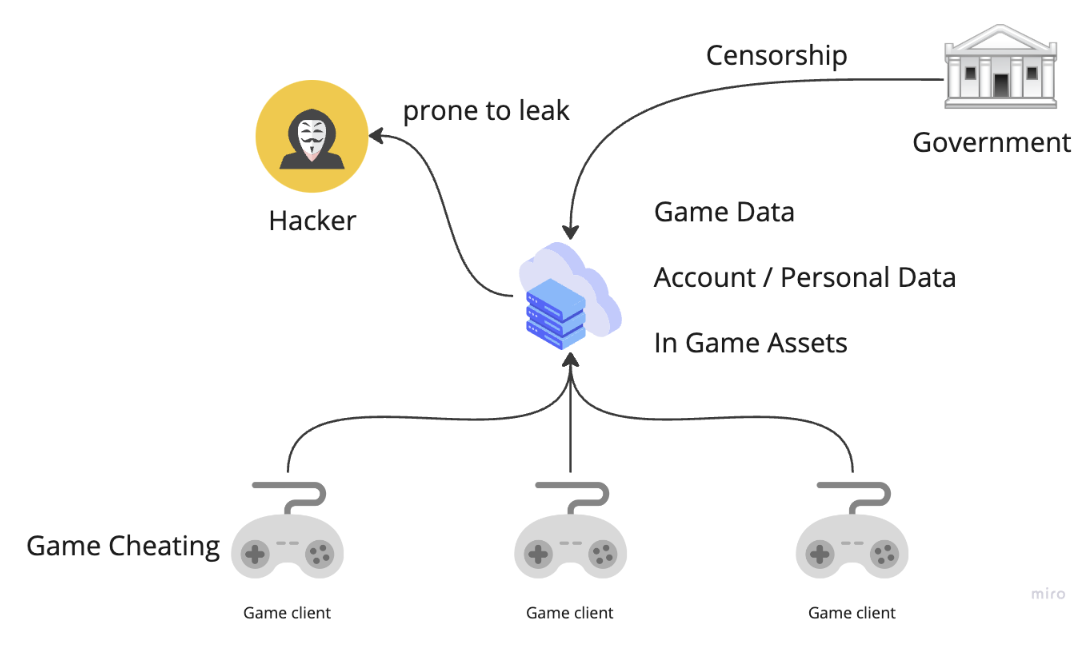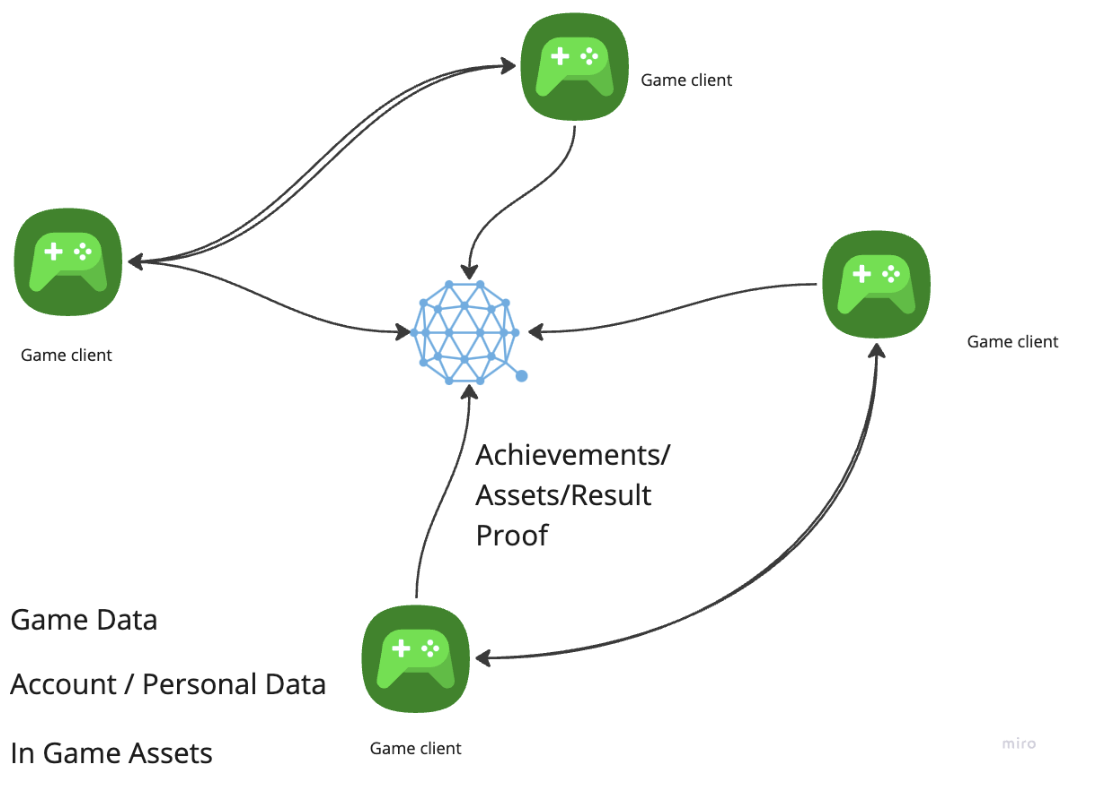Challenges of the Centralised Game Paradigm
Challenges of the Centralised Game Paradigm
Centralized Game Paradigm
The centralised game paradigm refers to a model where a single entity, usually the game developer or publisher, manages all aspects of a game, including its servers, player data, and monetization. While this model has been the industry standard for many years, it is not without its challenges especially when data privacy and data ownership becomes an outstanding issues for players:

- Data Vulnerability: The traditional game paradigm, which relies on a single operational entity, exposes player data and in-game assets to potential cyberattacks. This vulnerability increases the risk of data leaks and compromises the security of user information.
- Challenge of Fair Play: Ensuring a cheat-free gaming environment is a significant challenge for developers in the traditional game paradigm. As there is communication between the client and server, resourceful players may exploit vulnerabilities in the game design to gain unfair advantages.
- Limited Asset Ownership: In the traditional game paradigm, all data is managed by the game operator, resulting in a lack of true ownership for in-game assets. Players are unable to exchange or trade these assets without the permission of the game operators, restricting their control over their virtual possessions.
- Censorship Concerns: Centralised gaming systems are susceptible to governmental censorship, which can hinder innovation and creative expression for both developers and players. This constraint makes it difficult to explore novel gaming experiences and pushes the industry toward homogenization.
Transitioning to blockchain based web3 game paradigm
Blockchain-based technology is going to revolutionise the gaming industry by empowering players with true ownership and control over their data and in-game assets. The decentralised game paradigm eliminates the need for a single operator, and player clients can communicate with each other to play the game. All movements and in-game achievements can be saved into the blockchain so that the owner of the data can have full ownership and control.

- Data ownership and security: Players have complete control over their data, which is securely stored on the blockchain. This decentralised storage prevents unauthorised access, theft, or tampering by third parties.
- Trustless and transparent gameplay: The blockchain's decentralised nature ensures that every action and achievement by players is recorded and verified by their local game client. This generates a tamper-proof record of their activities, fostering a trustless and transparent gaming environment.
- Decentralised game economy: A decentralised game economy can promote fairness and transparency by eliminating the need for a central authority to control the distribution of rewards and assets. Players can directly trade with one another or participate in decentralised finance (DeFi) platforms to earn passive income from their in-game assets.
- Reduced fraud and cheating: The immutability of blockchain technology makes it difficult for players to cheat or manipulate the system, leading to a fairer and more enjoyable gaming experience for all participants.